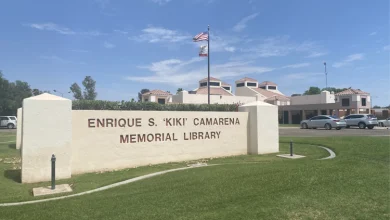African Policies on Drug Abuse and Addiction: A Comprehensive Analysis

Drug abuse and addiction pose significant challenges to societies worldwide, and Africa is no exception. The continent grapples with diverse substances, cultural variations, and socioeconomic factors that contribute to the complexity of the issue.
In this article, we will delve into the various policies implemented across African nations to address the growing drug abuse and addiction problems on the continent. From the historical context to contemporary strategies, we will explore the multifaceted approaches taken by African governments and organizations to tackle this pervasive problem.
Historical Context
Understanding the historical context of drug use in Africa is crucial for developing effective policies. Traditionally, many African societies had their own rituals involving psychoactive substances, often integrated into cultural practices. However, the advent of colonialism and the subsequent globalization of trade routes introduced new substances, leading to shifts in drug use patterns.
During the colonial era, various European powers exploited African territories for resources, including drugs like tobacco and alcohol. This not only disrupted traditional drug-use patterns but also laid the foundation for contemporary substance abuse issues. The post-colonial period witnessed the emergence of new challenges, as African nations struggled with political instability, economic disparities, and limited resources to address public health concerns.
Current Drug Landscape in Africa
Africa’s drug landscape is diverse, encompassing a wide range of substances, including traditional psychoactive plants, prescription medications, and illicit drugs. Cannabis, cocaine, heroin, and amphetamines are prevalent, with synthetic drugs like methamphetamines gaining traction in some regions. The misuse of prescription medications, particularly opioids, is also a growing concern.
The prevalence of drug abuse varies across East, West, Central, North, and Southern African countries, reflecting the diverse socio-cultural, economic, and geopolitical landscapes of the continent. In East Africa, countries like Kenya and Tanzania grapple with challenges posed by the trafficking of illicit substances, particularly due to their proximity to major drug-producing regions.
In West Africa, nations such as Nigeria and Ghana face significant issues related to both local drug consumption and serving as transit points for international drug trafficking. Central African countries, often affected by political instability, contend with drug abuse as a consequence of complex social and economic factors. In North Africa, Egypt and Libya, strategic locations for drug transit, implement stringent anti-drug policies, emphasizing law enforcement. Southern African countries, including South Africa and Zimbabwe, deal with a spectrum of substances, with high rates of alcohol and cannabis use, alongside challenges posed by other illicit drugs.
The factors contributing to drug abuse in Africa are complex and interconnected. Poverty, unemployment, political instability, and lack of education contribute to vulnerability, while porous borders facilitate the illicit drug trade. Additionally, the continent’s youthful population faces unique challenges, with many falling prey to substance abuse due to peer pressure, limited opportunities, and a lack of awareness about the risks involved.
National Policies
African nations have developed a range of policies to address drug abuse and addiction. While the specifics vary, common threads include law enforcement, prevention, treatment, and harm reduction. Let’s explore the approaches of select African countries:
1. South Africa
South Africa has a comprehensive drug policy that combines law enforcement with harm reduction and treatment initiatives. The Prevention and Treatment for Substance Abuse Act criminalizes certain drug-related activities while emphasizing the importance of prevention and treatment. The country recognizes substance abuse as a public health issue, prompting a shift from punitive measures to a more balanced approach.
South Africa has implemented harm reduction strategies, such as needle exchange programs for intravenous drug users, to mitigate the spread of bloodborne infections. Treatment centers, both public and private, offer rehabilitation services and counseling for individuals struggling with addiction. The government also emphasizes community-based interventions to address the root causes of substance abuse.
2. Nigeria
Nigeria faces significant challenges due to its large population and diverse cultural landscape. The National Drug Control Master Plan outlines the country’s approach to drug abuse, focusing on supply reduction, demand reduction, and harm reduction. Law enforcement agencies including the National Drug Law Enforcement Agency (NDLEA) collaborate with international partners to combat drug trafficking, while community-based organizations play a crucial role in demand reduction efforts.
Nigeria recognizes the importance of treatment and rehabilitation, with government-funded centers providing services across the country. However, the availability of treatment facilities remains a challenge, particularly in rural areas. The government is working to increase public awareness about the dangers of drug abuse and the available support services.
3. Kenya
Kenya’s National Campaign Against Drug Abuse Authority (NACADA) is at the forefront of the country’s efforts to combat substance abuse. The authority focuses on prevention through education and community engagement, aiming to reduce the demand for drugs. Additionally, NACADA collaborates with law enforcement agencies to control the supply of illicit substances.
Treatment and rehabilitation services in Kenya are provided by both government and non-governmental organizations. However, challenges persist in terms of accessibility, especially in marginalized areas. Kenya also emphasizes international cooperation to address transnational drug trafficking.
4. Egypt
Egypt has a long history of stringent drug policies, reflecting its commitment to combatting substance abuse. The country criminalizes the production, trafficking, and possession of illicit drugs, with severe penalties, including capital punishment, for certain offenses. Egypt’s approach is primarily focused on law enforcement and supply reduction.
While Egypt has rehabilitation centers and treatment services, the emphasis remains on deterrence through strict legal measures. The country faces challenges related to the trafficking of drugs through its borders due to its strategic location between Africa and the Middle East.
Challenges and Criticisms
Despite the efforts of various African nations to address drug abuse, several challenges persist. One common criticism is the overemphasis on punitive measures, such as incarceration, which may exacerbate the social issues contributing to substance abuse. The lack of comprehensive data on drug use and addiction in many African countries poses a significant obstacle to evidence-based policymaking.
Additionally, the stigma associated with drug addiction remains a barrier to effective prevention and treatment. Societal perceptions often view addiction as a moral failing rather than a complex health issue, hindering individuals from seeking help. In many cases, limited resources and infrastructure further impede the implementation of robust prevention and treatment programs.
International Cooperation
Addressing drug abuse in Africa requires not only national efforts but also collaboration on the international stage. African countries engage with various organizations and initiatives to strengthen their responses to the drug epidemic. The United Nations Office on Drugs and Crime (UNODC) plays a pivotal role in coordinating global efforts, providing technical assistance, and promoting best practices.
Regional organizations, such as the African Union and the Economic Community of West African States (ECOWAS), facilitate cooperation among member states. These collaborations aim to harmonize policies, share intelligence, and coordinate efforts to combat transnational drug trafficking.
Conclusion
The complex nature of drug abuse and addiction in Africa demands a multifaceted approach that addresses both the supply and demand sides of the issue. While law enforcement plays a crucial role in controlling the illicit drug trade, it is equally important to invest in prevention, treatment, and harm reduction strategies. African countries must balance punitive measures with a focus on public health to effectively combat the root causes of substance abuse.
The challenges faced by African nations in their efforts to address drug abuse underscore the need for sustained international cooperation and support. By learning from both successes and shortcomings, countries can refine their policies and interventions to create a more comprehensive and effective response to the complex issue of drug abuse and addiction in Africa.





